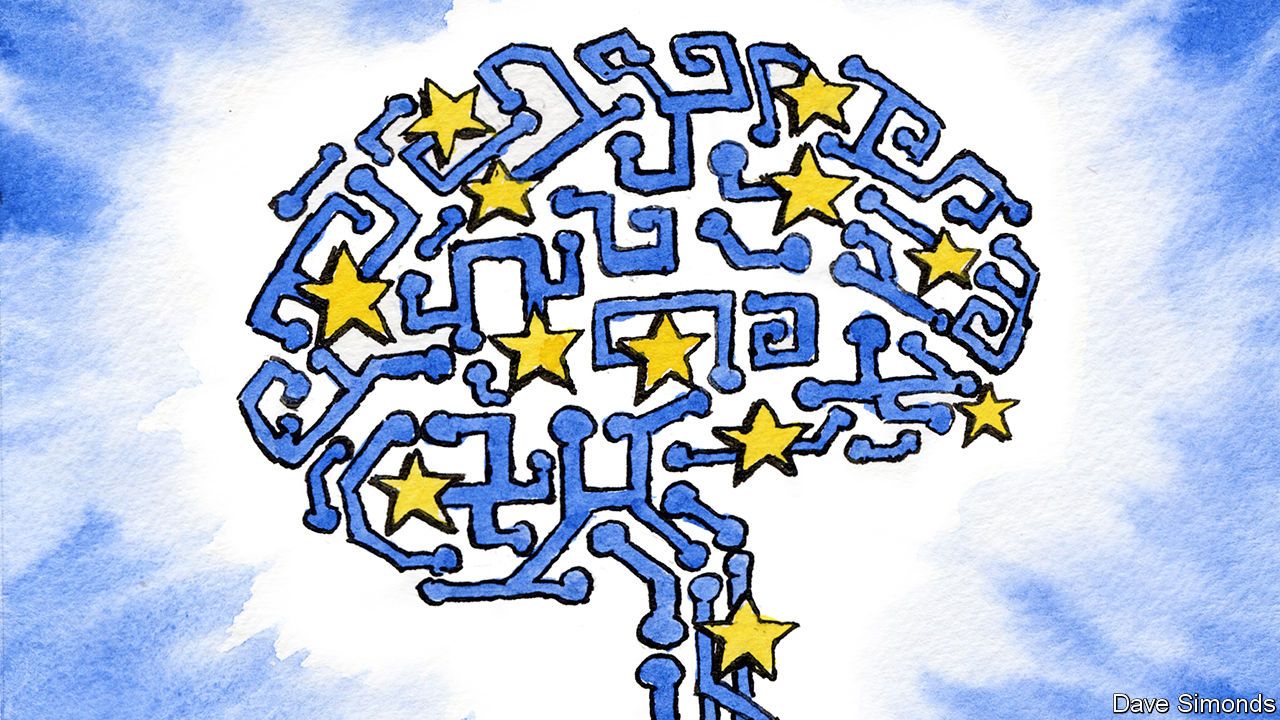THE two superpowers of artificial intelligence (AI) are America and China. Their tech giants have collected the most data, attracted the best talent and boast the biggest computing clouds—the main ingredients needed to develop AI services from facial recognition to self-driving cars. Their dominance deeply worries the European Union, the world’s second-largest economic power (see article). It is busily concocting plans to close the gap.
That Europe wants to foster its own AI industry is understandable. Artificial intelligence is much more than another Silicon Valley buzzword—more, even, than seminal products like the smartphone. It is better seen as a resource, a bit like electricity, that will touch every part of the economy and society. Plenty of people fret that, without its own cutting-edge research and AI champions, big digital platforms based abroad will siphon off profits and jobs and leave the EU a lot poorer. The technology also looms large in military planning. China’s big bet on AI is partly a bet on autonomous weapons; America is likely to follow the same path. Given the doubt over whether America will always be willing to come to Europe’s defence, some see spending on AI as a matter of national security.








